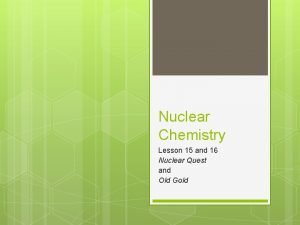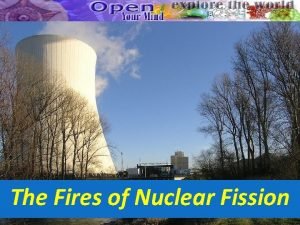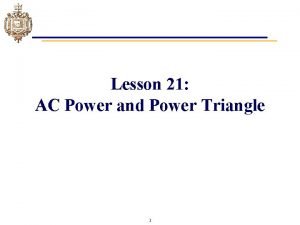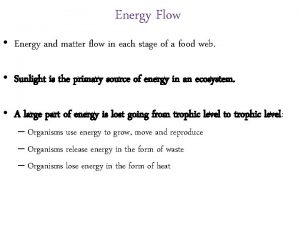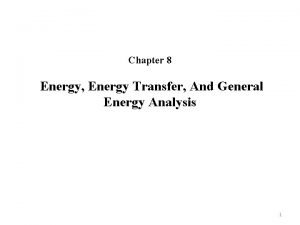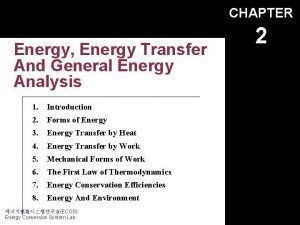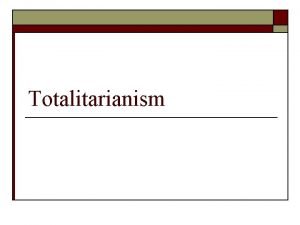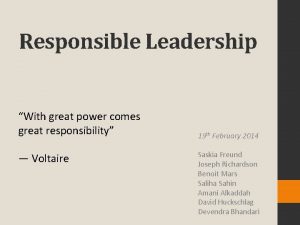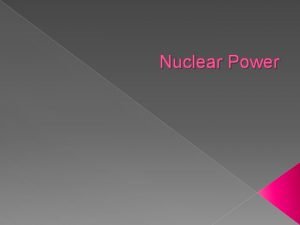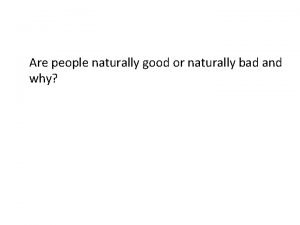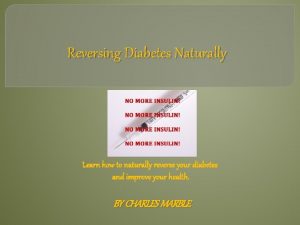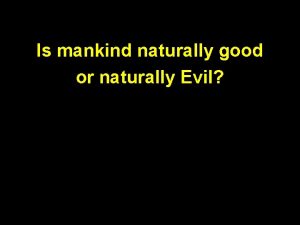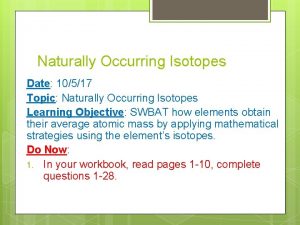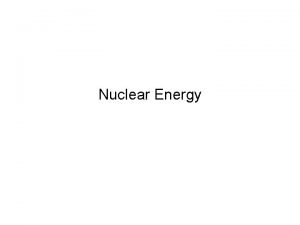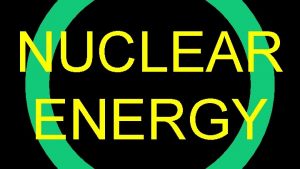Nuclear Power Nuclear energy comes from a naturally










- Slides: 10


Nuclear Power Nuclear energy comes from a naturally occurring material that is refined and used to produce nuclear power. Uranium is the material used to create nuclear energy. For uranium to convert into nuclear energy, it must go through fission. This process takes place in nuclear reactors, and it works by shooting an extra neutron into the atom of U-235 to produce a rapid chain-reaction that splits through the material.

Efficiency & Cost Uranium has the advantage of being highly concentrated source of energy which is easily and cheaply transportable. The quantities needed are very much less than for coal or oil. One kilogram of natural uranium will yield about 20, 000 times as much energy as the same amount of coal. This involved boosting enrichment levels and burn-up to achieve 40% fuel cost reduction. Prospectively, a further 8% increase in burn-up will give another 5% reduction in fuel cost. The first wave of the new plants in the USA are expected to cost over $3500 per KW of capacity.

Equipments Use to Create Nuclear Energy Steam generator- part of a pressurized-water reactor that uses the heat of nuclear fission to convert water into steam which turns large turbines to generate electricity. Turbine generator- equipment that converts the heat of a nuclear reaction into huge amounts of electricity, which is then distributed to many power substations nearby. Boiling-Water Reactor- a boiling-water reactor converts water to steam within the reactor building itself, producing massive amounts of high-energy steam.

Consumption/Usage The USA is the world's largest producer of nuclear power, accounting for more than 30% of worldwide nuclear generation of electricity. The country's 104 nuclear reactors produced 807 billion k. W/h in 2010, over 20% of total electrical output.

Nuclear Power World’s Usage Sixteen countries depend on nuclear power for at least a quarter of their electricity. France gets around three quarters of its power from nuclear energy, while Belgium, Bulgaria, Czech Republic, Hungary, Slovakia, South Korea, Sweden, Switzerland, Slovenia and Ukraine get one third or more. Japan, Germany and Finland get more than a quarter of their power from nuclear energy Among countries which do not host nuclear power plants, Italy gets about 10% of its power from nuclear, and Denmark about 8%.


Advantages Nuclear power generation does emit relatively low amounts of carbon dioxide (CO 2). It is possible to generate a high amount of electrical energy in one single plant. Reduces dependence on foreign oils and natural gas Though initial cost of building nuclear plants is high, the running costs are relatively low.

Disadvantage The waste from nuclear energy is extremely dangerous and it has to be carefully looked after for several thousand years. Nuclear Power generates radiation, which can be harmful or even fatal to infected people Nuclear waste dumps can spontaneously combust without warning. Disposal of this radioactive waste has not been safely achieved.

Bibliography http: //www. worldnuclear. org/info/inf 41. html http: //investing. curiouscatblog. net/2011/03/16/nucl ear-power-production-by-country-from-1985 -2009/ http: //www. darvill. clara. net/altenerg/nuclear. htm www-formal. stanford. edu/jmc/progress/nuclear- faq. html The End By: Thien Tran Bryan Arauzo Bruce Arauzo
 First comes love then comes marriage
First comes love then comes marriage Lesson 15 nuclear quest nuclear reactions
Lesson 15 nuclear quest nuclear reactions Fisión nuclear vs fision nuclear
Fisión nuclear vs fision nuclear Triangle of power
Triangle of power Ecological succession
Ecological succession Energy energy transfer and general energy analysis
Energy energy transfer and general energy analysis Energy energy transfer and general energy analysis
Energy energy transfer and general energy analysis Lenin dies and stalin comes to power
Lenin dies and stalin comes to power Stalin comes to power
Stalin comes to power What comes to your mind when you hear the words work
What comes to your mind when you hear the words work With great leadership comes great responsibility
With great leadership comes great responsibility

